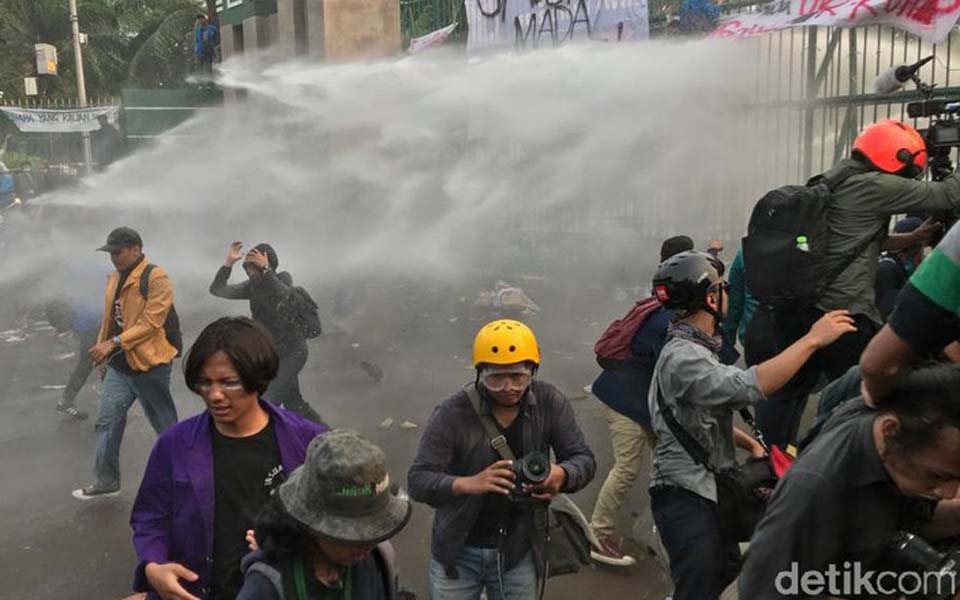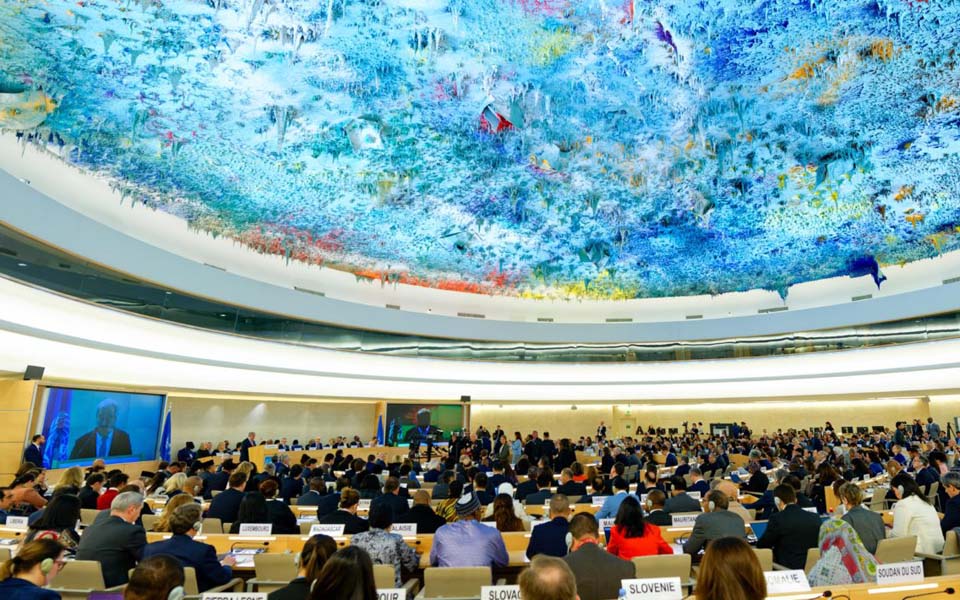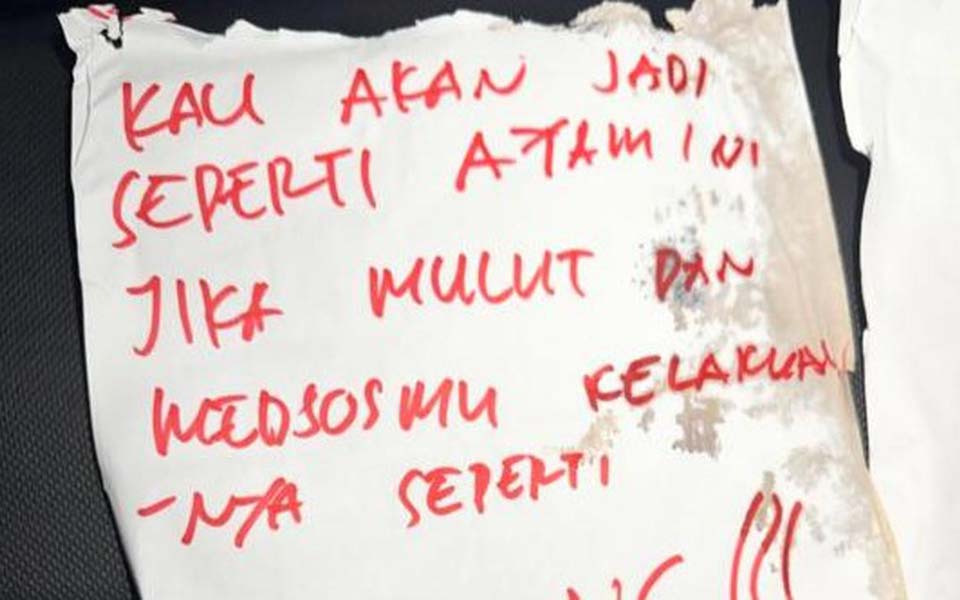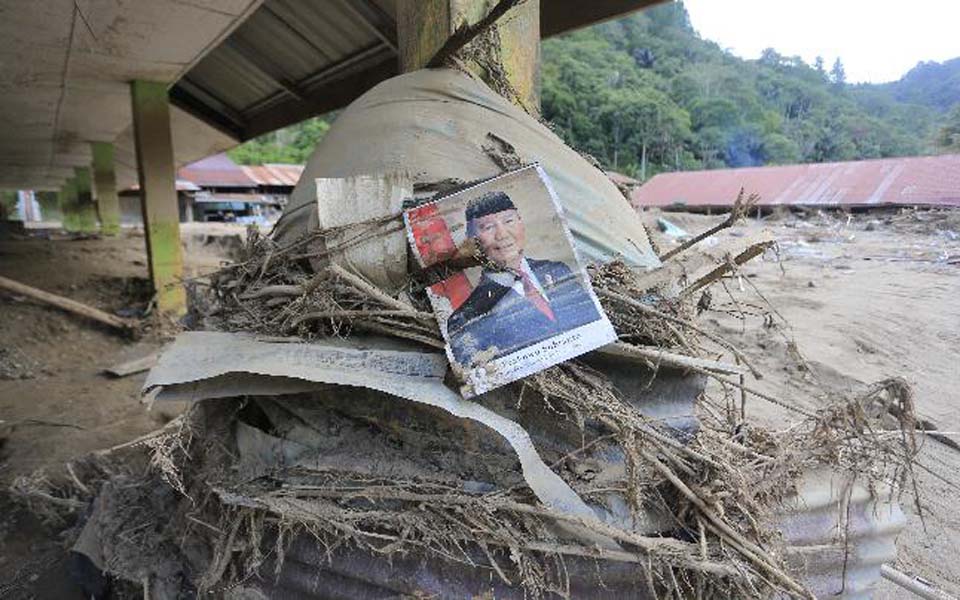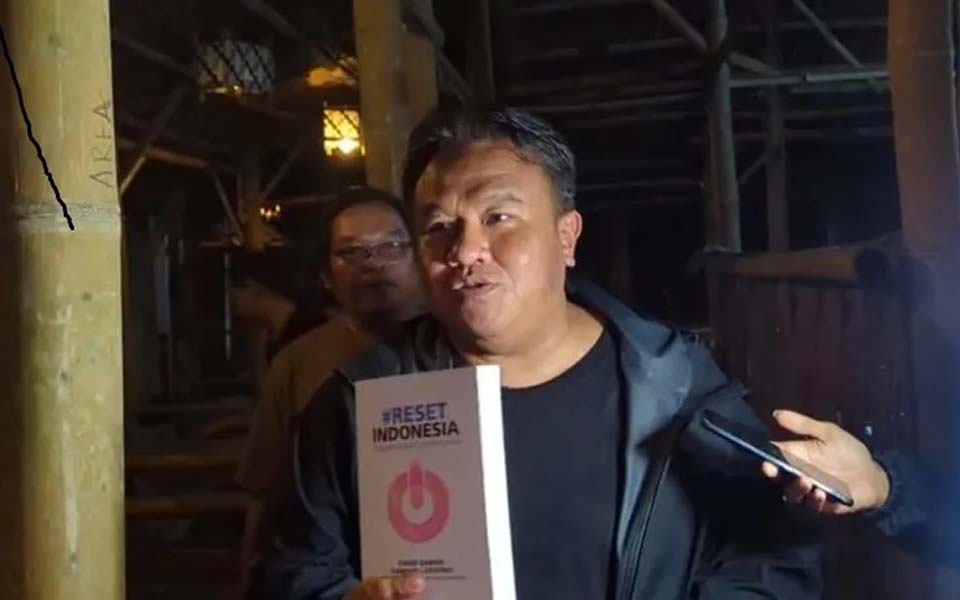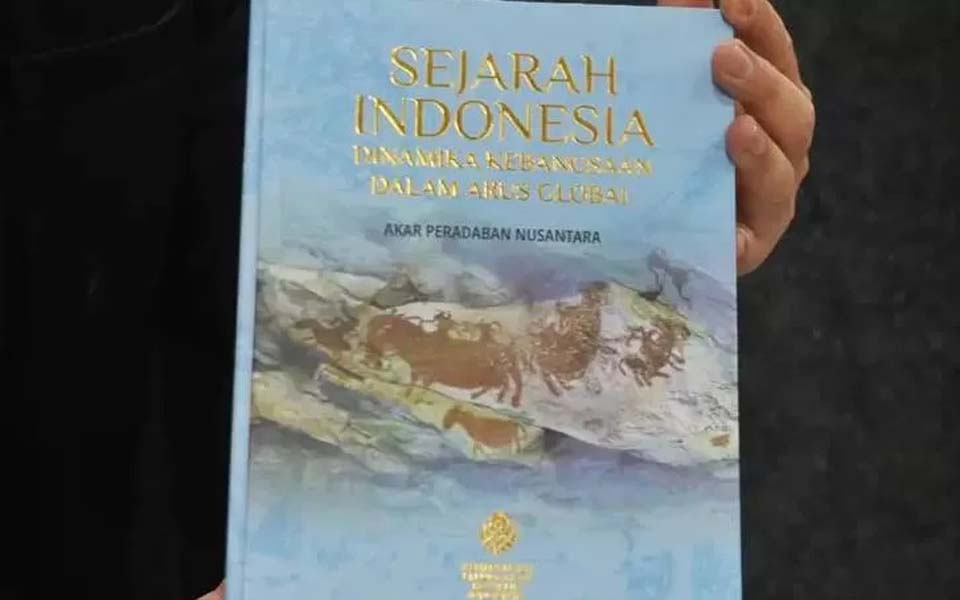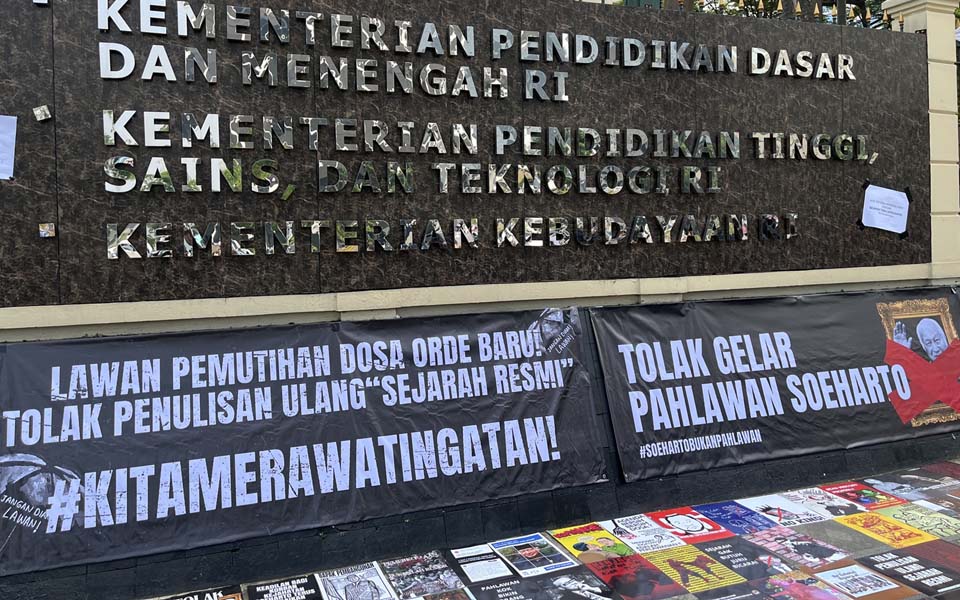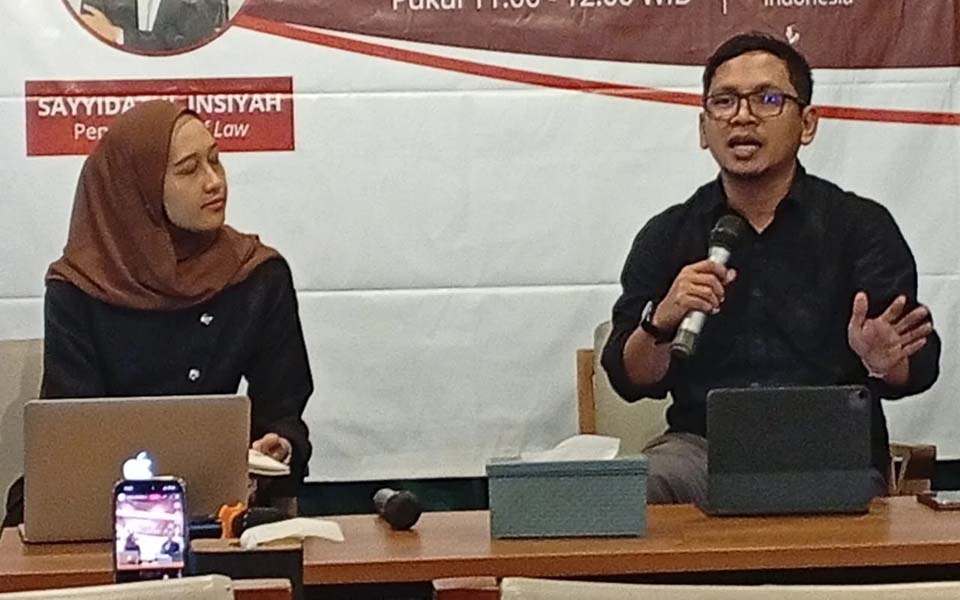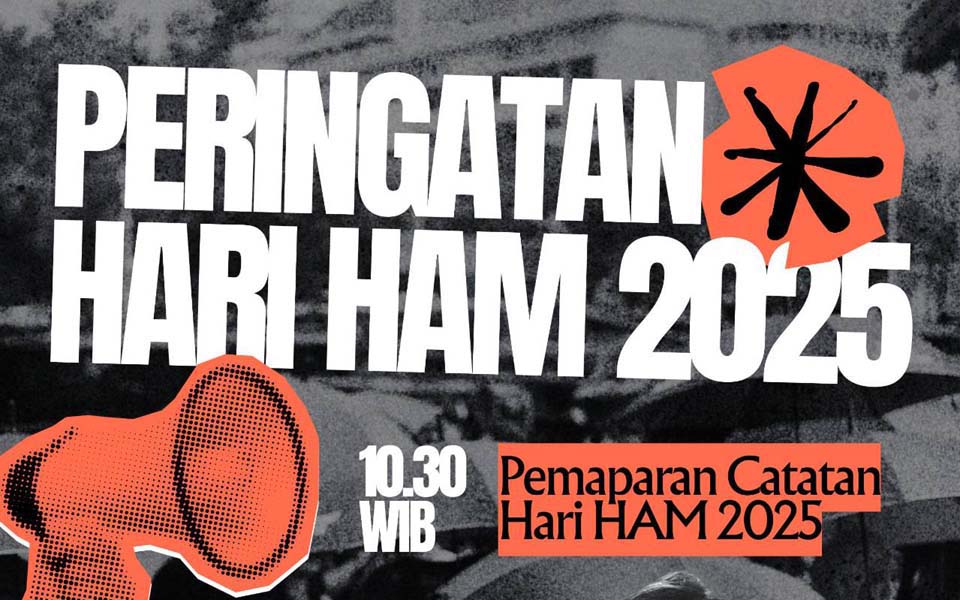Jakarta – The Commission for Missing Persons and Victims of Violence (Kontras) recorded 1,056 cases related to violations of freedom of assembly in different parts of Indonesia between 2015 and 2018.
The cases were taken from a study into incidents of violation against freedom of assembly between 2015 and 2018. The study was largely based on cases from West Java, the Central Java province of Yogyakarta and Papua through in-depth interviews.
The results of the interviews showed that there were as many as 115 cases of restrictions on freedom of assembly in West Java between 2015 and 2018. In Yogyakarta there were 115 case and in Papua 89 cases.
“Specifically, Kontras gathered data in the sector of freedom of assembly where not all cases became the object of study but rather cases which were specific and documented”, read the Kontras study titled Finding the Patterns of Restrictions on Freedom of Assembly.
Out of these thousand or so cases, Kontras found three recurring patterns used to restrict space for free expression. First, a pattern of arbitrary restrictions on the right of assembly by law enforcement officials.
Second, a pattern of restricting the right of assembly which was specifically directed at civil groups using their constitutional right to balance state discourse.
Third, in many cases there were no mechanisms of state accountability which were effectively able to provide justice to victims when civil society attempted to test internal and external accountability for practices of the forced disbursals.
“Kontras concluded that a pattern of restricting freedom of assembly emerged in various forms, such as legislation which was open to broad interpretation on the part of security forces in the field which were implemented haphazardly to restrict the right to freedom of assembly and other fundamental freedoms”, he said.
“Then there was the minimal understanding on the part of the government and police related to human rights standards and principles which are guaranteed by the constitution as well as conventions or international agreements which have been ratified by Indonesia”.
In addition to this, Kontras concluded that the forms and methods of violating the right to freedom of assembly were not just committed through forced dispersals carried out based on the intervention of social or mass organisations (ormas).
Kontras believes that local governments failed to protect or guarantee these rights and in fact were involved in the violations of the right to assembly.
One of the cases highlighted by Kontras was the breaking up of an informal gathering by a transgender community in Cirebon, West Java, on August 12, 2015.
The event was attended by around 50 members of the community. One community member named Ipeh said that they had already requested a permit for the event from the authorised parties, starting with the neighbourhood association (RT), the community unit (RW) through to the local police.
The argument used by the Islamic militia organisation Al-Manar (Nahi Munkar Alliance) for closing down the event was that it allegedly created unrest among the Islamic community and violated Islamic religious teachings. (dni/agt)
[Translated by James Balowski. The original title of the article was “KontraS Catat 1.056 Kasus Pembatasan Kebebasan Berkumpul”.]





